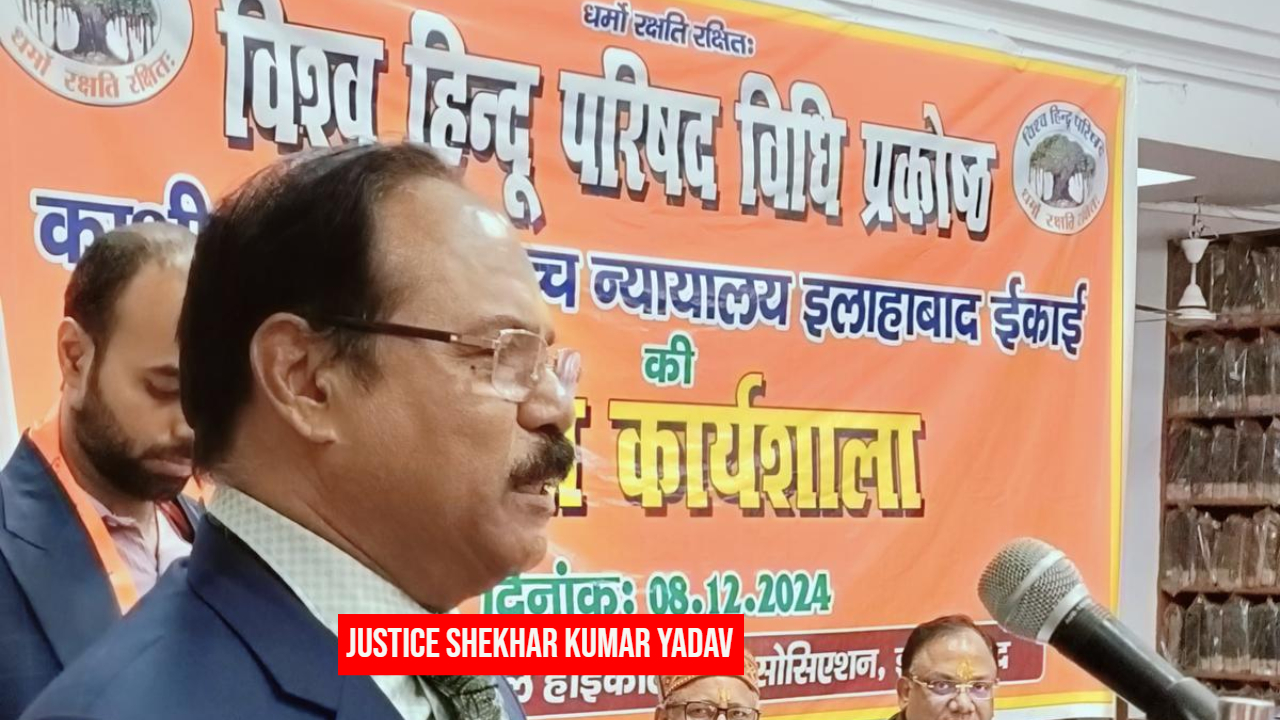 |
|
The Supreme Court of India has initiated an inquiry into a controversial speech delivered by Justice Shekhar Kumar Yadav, a judge of the Allahabad High Court. The speech, delivered at an event organized by the Vishwa Hindu Parishad (VHP), a Hindu nationalist organization, has drawn widespread condemnation for its allegedly communal and derogatory remarks targeting the Muslim community. Reports indicate that Justice Yadav's address included inflammatory statements suggesting the nation should operate according to the desires of the majority population and the use of offensive slurs against Muslims. This action by the Supreme Court underscores the gravity of the situation and highlights the importance of judicial impartiality and the avoidance of biased public statements by judges. The potential implications of this case are far-reaching, impacting public trust in the judiciary and raising critical questions about the conduct of judges outside the formal courtroom setting. The Supreme Court's decision to seek details from the Allahabad High Court demonstrates a commitment to investigate the matter thoroughly and take appropriate action based on the findings.
The controversy surrounding Justice Yadav's speech has sparked intense debate about the boundaries of free speech for judges and the responsibility they hold to maintain neutrality and uphold the principles of judicial ethics. Critics argue that his remarks were not only deeply offensive but also undermined the impartiality expected of a judge, potentially eroding public confidence in the judicial system. The use of derogatory language, specifically targeting a religious minority, is particularly concerning given the sensitive nature of communal relations in India. This incident raises concerns about the potential influence of political ideologies on judicial conduct and the need for clear guidelines on appropriate behavior for judges outside of court proceedings. The call for transparency and accountability in this case is amplified by the potential impact on ongoing cases and the perception of fairness within the legal system.
The Supreme Court's involvement signals a serious attempt to address the ethical implications of Justice Yadav's actions. The demand for details from the Allahabad High Court suggests a commitment to a full and impartial investigation. The outcome of this investigation will likely have significant implications for the judicial system and its standards of conduct. It could lead to disciplinary action against Justice Yadav, ranging from a reprimand to more serious sanctions. Furthermore, this case could spur broader discussions about revising codes of conduct for judges to explicitly address public statements and their potential impact on the integrity of the judiciary. The event serves as a critical reminder of the importance of maintaining public trust and confidence in the independence and impartiality of the judiciary, which is fundamental to the rule of law.
The case also highlights the complex interplay between religious freedom, freedom of speech, and the responsibilities of public figures, particularly those holding positions of power and influence. Striking a balance between these rights and responsibilities is crucial in a diverse and pluralistic society like India. The potential for such statements to incite communal tensions and undermine social harmony necessitates a thorough investigation and appropriate measures to prevent similar incidents in the future. The Supreme Court's response underscores the need for robust mechanisms to address instances of judicial misconduct and to maintain the highest standards of integrity within the judicial system. The ongoing scrutiny of this case will undoubtedly shape future discussions on judicial ethics and the role of judges in maintaining a fair and equitable legal system.
Ultimately, the Supreme Court's intervention emphasizes the need for judges to be acutely aware of the weight of their words and actions. Their public statements, both in and out of the courtroom, carry significant influence and must adhere to the highest standards of impartiality and decorum. This case represents a crucial test of the judicial system's ability to self-regulate and uphold its commitment to justice and fairness for all citizens. The outcome will significantly affect how judges navigate their public roles and how the judiciary addresses future instances of perceived misconduct or bias. The transparent handling of this case will be instrumental in maintaining public trust and confidence in the judicial process.
